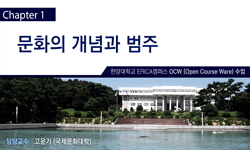본 연구는 개인주의와 집단주의에 대한 시각과 함께 민속문화를 통해서 개인주의와 집단주의가 어떤 양상으로 발현되고 확대되는 지를 분석하였으며, 이를 토대로 전통적인 개인주의와 집...
http://chineseinput.net/에서 pinyin(병음)방식으로 중국어를 변환할 수 있습니다.
변환된 중국어를 복사하여 사용하시면 됩니다.
- 中文 을 입력하시려면 zhongwen을 입력하시고 space를누르시면됩니다.
- 北京 을 입력하시려면 beijing을 입력하시고 space를 누르시면 됩니다.
민속문화에 나타난 개인주의와 집단주의의 성향과 변화 연구
한글로보기https://www.riss.kr/link?id=G3744355
- 저자
-
발행기관
-
-
발행연도
2016년
-
작성언어
Korean
-
주제어
민속문화 ; Folk culture ; individualism ; collectivism ; change and severance ; the worth of tradition ; the harmony of modern ; 개인주의 ; 집단주의 ; 나와 우리 ; 전통가치 계승 ; 세시풍속
-
자료형태
한국연구재단(NRF)
-
0
상세조회 -
0
다운로드
부가정보
국문 초록 (Abstract)
먼저 민속문화 가운데 세시풍속에 담긴 개인과 집단의 관계에 대한 의미 해석을 시도하였는데, ‘나’라는 개인이 존재하면서도 ‘나’를 포함한 집단의 상호성이 긴밀하다. 즉 개인적 목표가 내집단에 종속되며, 상호의존적, 내집단이 심리적 장의 중심이 되며 결과적으로 행위를 통해 ‘우리’라는 의식이 비교적 강하게 표출되고 있다. 즉 나와 우리가 개별적으로 존재하지 않고 독립적이면서 상호긴밀하게 연계되어 있음을 확인하였다. 이러한 점은 가정신앙과 마을신앙 그리고 풍수에 기반 한 조상묘와 입석의 사례 등에서도 확인하였는데, 결과적으로 민속문화에 나타난 개인주의는 자신의 이익을 위한 문화적 행위이고 이 행위를 통해 자신의 존재가치를 증명하고 있다. 그리고 민속문화에 나타난 집단주의는 집단(마을)을 위한 문화적 행위이고, 이 행위를 통해 집단에 소속된 사람들(마을사람들)의 존재가치를 증명하고 있는데, 다만 개인과 집단 가운데 어디에 초점을 두고 행하는가에 차이 일뿐 그 명확한 경계선은 없다. 이외 장자못전설과 유교이념에 대한 검토를 통해서도 민속문화에서 지향하는 개인과 집단이 결코 개별적이거나 독립적이지 않다는 점을 살폈다.
마지막으로 오늘날 급변하는 현대사회에서 개인주의와 집단주의는 외적 혹은 내적요인에 의해 변화를 거듭하는 상황 속에서 민속문화를 통해 앞서 제시한 전통적 가치의 장점을 발전적으로 계승하고 현대사회에서 개인주의와 집단주의의 상호보완적인 관계 즉, 조화를 이룰 때 가장 이상적인 이념체계임을 강조하였다.
본 연구는 개인주의와 집단주의에 대한 시각과 함께 민속문화를 통해서 개인주의와 집단주의가 어떤 양상으로 발현되고 확대되는 지를 분석하였으며, 이를 토대로 전통적인 개인주의와 집단주의의 가치를 발전적으로 계승하고 현대문화와의 조화가 필요함을 검토하였다.
먼저 민속문화 가운데 세시풍속에 담긴 개인과 집단의 관계에 대한 의미 해석을 시도하였는데, ‘나’라는 개인이 존재하면서도 ‘나’를 포함한 집단의 상호성이 긴밀하다. 즉 개인적 목표가 내집단에 종속되며, 상호의존적, 내집단이 심리적 장의 중심이 되며 결과적으로 행위를 통해 ‘우리’라는 의식이 비교적 강하게 표출되고 있다. 즉 나와 우리가 개별적으로 존재하지 않고 독립적이면서 상호긴밀하게 연계되어 있음을 확인하였다. 이러한 점은 가정신앙과 마을신앙 그리고 풍수에 기반 한 조상묘와 입석의 사례 등에서도 확인하였는데, 결과적으로 민속문화에 나타난 개인주의는 자신의 이익을 위한 문화적 행위이고 이 행위를 통해 자신의 존재가치를 증명하고 있다. 그리고 민속문화에 나타난 집단주의는 집단(마을)을 위한 문화적 행위이고, 이 행위를 통해 집단에 소속된 사람들(마을사람들)의 존재가치를 증명하고 있는데, 다만 개인과 집단 가운데 어디에 초점을 두고 행하는가에 차이 일뿐 그 명확한 경계선은 없다. 이외 장자못전설과 유교이념에 대한 검토를 통해서도 민속문화에서 지향하는 개인과 집단이 결코 개별적이거나 독립적이지 않다는 점을 살폈다.
마지막으로 오늘날 급변하는 현대사회에서 개인주의와 집단주의는 외적 혹은 내적요인에 의해 변화를 거듭하는 상황 속에서 민속문화를 통해 앞서 제시한 전통적 가치의 장점을 발전적으로 계승하고 현대사회에서 개인주의와 집단주의의 상호보완적인 관계 즉, 조화를 이룰 때 가장 이상적인 이념체계임을 강조하였다.
다국어 초록 (Multilingual Abstract)
Among folk culture, there is an individual called me and close group interaction including ‘me’ in seasonal customs. That is, it can be found that me and us are independent from each other and closely connected to each other, not existing individually. This point was found in household religion, village beliefs, and the graves of our ancestors and menhir(立石) based on feng shu.
In the end, the difference between individualism and groupism shown in folk culture just depends on cultural forms which is focused on. It was found that individuals and groups seek for mutual harmony as a set.
Finally, it again emphasized the ideal ideology when traditional values continue to develop through folk culture and individualism and groupism are in harmony with each other as they continue to change in modern society.
This study examined how individualism is shown and groupism is expanded through folk culture and emphasized the necessity of succeeding to traditional values and harmony with modern culture based on them. Among folk culture, there is an individual ca...
This study examined how individualism is shown and groupism is expanded through folk culture and emphasized the necessity of succeeding to traditional values and harmony with modern culture based on them.
Among folk culture, there is an individual called me and close group interaction including ‘me’ in seasonal customs. That is, it can be found that me and us are independent from each other and closely connected to each other, not existing individually. This point was found in household religion, village beliefs, and the graves of our ancestors and menhir(立石) based on feng shu.
In the end, the difference between individualism and groupism shown in folk culture just depends on cultural forms which is focused on. It was found that individuals and groups seek for mutual harmony as a set.
Finally, it again emphasized the ideal ideology when traditional values continue to develop through folk culture and individualism and groupism are in harmony with each other as they continue to change in modern society.











